Pedro Sanchez at the presentation of the ‘Spain 2050 Long-Term National Strategy’ © Moncloa
There was a seismic shift in Spain’s political terrain on 22 June 2023, when Prime Minister Pedro Sanchez embarked on a daring and controversial journey. With the stroke of a pen, he granted amnesty to nine Catalan separatist leaders, unleashing a maelstrom that sent the entire country into turmoil. These leaders, who had previously been convicted of sedition and rebellion for their involvement in the 2017 Catalan independence plebiscite, were at the centre of a polarising decision aimed at easing tensions and promoting dialogue between the central government and the Catalan separatist movement. However, following this bold move, a storm of indignation arose in a large part of the Spanish population and political spectrum, raising doubts about the way forward.
| A deep-rooted divide
The question of Catalonia’s independence has been a source of intense debate for centuries, characterised by deep cultural, linguistic and historical divides between it and the rest of Spain, and tensions over Catalonia’s autonomy within Spain have ebbed and flowed for decades. Catalan nationalism saw a strong revival after Francisco Franco’s death in 1975 ended nearly four decades of dictatorship that had suppressed Catalan culture and identity. In 2006, proposed reforms to devolve further powers triggered massive demonstrations in Barcelona.
In 2017, these divisions reached a boiling point when the Catalan government, led by separatist Carles Puigdemont, organised a unilateral independence referendum, despite its legality being challenged by the Spanish Constitutional Court. The Spanish government responded by invoking Article 155 of the constitution, dismissing Catalonia’s government and directly controlling the region with force. The police was deployed to suppress the vote, which led to violent clashes with numerous injuries. This pivotal moment in history is a stark reminder of the deep-rooted complexity of Catalan aspirations for self-government and the challenges of navigating this delicate political landscape.
As the aftermath of the referendum unfolded, Puigdemont and fellow separatist leaders chose to flee the country, seeking refuge from impending prosecution. Meanwhile, nine other individuals faced a different fate, as they were apprehended, accused of sedition and rebellion, and brought to trial.
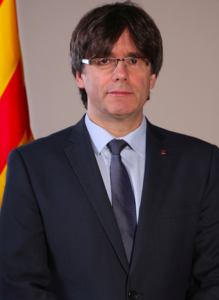
In 2019, the verdict was delivered, declaring them guilty, and they received sentences ranging from nine to 13 years behind bars. Oriol Junqueras, the former vice president of Catalonia, received the longest sentence for sedition and embezzlement. Eight other people, including former members of the Catalan government, Carme Forcadell, former speaker of the Catalan government and Jordi Sanchez and Jordi Cuixart, two leaders of separatist grassroots groups were also sentenced to between 9 and 12 years in prison. This chapter in the history of Catalan independence underscores the far-reaching consequences and legal ramifications that unfolded as a result of their actions, leaving an indelible mark on the course of their lives and the wider political landscape.
These sentences caused outrage in Catalonia and were seen as disproportionate, despite the leaders clearly breaking the law. Spain became polarised as never before over the national question.
Four years on, the wounds of 2017 remained deep and tensions unresolved.
| Sanchez assumes power amid deadlock
In the wake of the Catalonia crisis, Spain witnessed a storm of early elections in the final months of 2015 and early 2016. However, the political landscape remained turbulent as no party managed to win a majority and the centre-right parties stubbornly refused to give Pedro Sanchez of the PSOE (Spanish Socialist Workers Party) the authority to form a government. As a result, the country found itself in an unsettling political limbo for eight months, without the basis for a stable government.
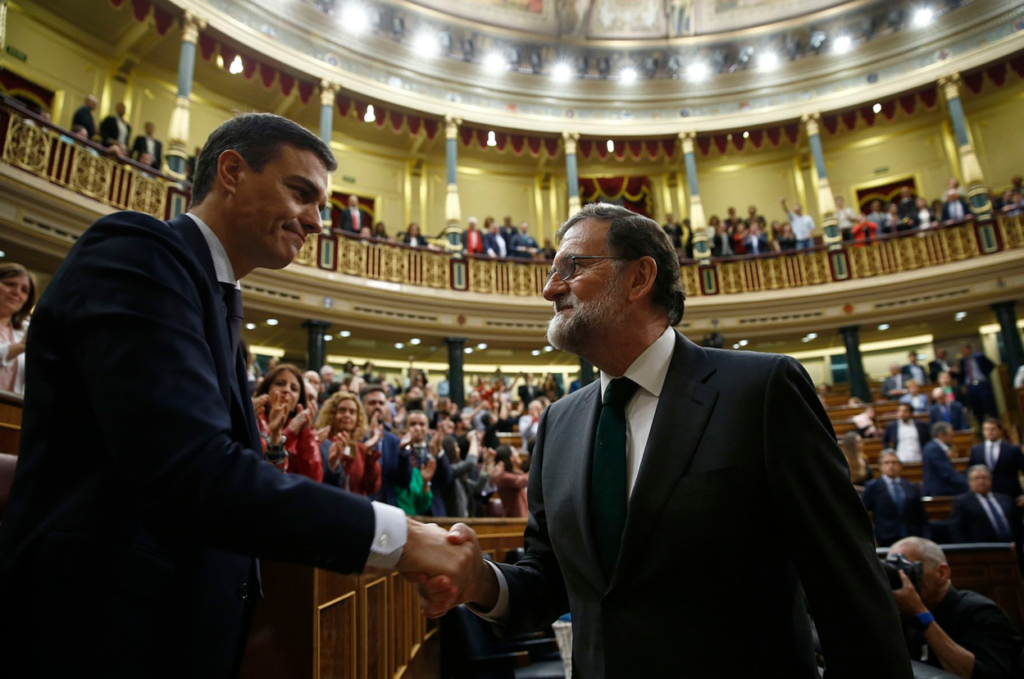
Then, in a shrewd political move that took his opponents by surprise, Sanchez staged a masterful manoeuvre in June 2018. With a surprise vote of no confidence, he dethroned Prime Minister Mariano Rajoy of the PP (People’s Party) and claimed the throne of a caretaker government. However, Sanchez encountered a labyrinth of obstacles as soon as he ascended to this new-found leadership position. The fragmented party system proved to be an arduous battleground, hampering his ability to negotiate support for his government and navigate the treacherous waters of budget approval.
In this complicated web of challenges, Sanchez found himself at a crossroads. Searching for a solution to the territorial conflict plaguing the nation while struggling with his own political dilemma, he presented a delicate strategy. He chose the path of appeasement to allay the hopes of the Catalan nationalists. With this calculated approach, Sanchez wanted to find a way to reconcile the territorial divide and at the same time consolidate his own political position.
In a daring political chess move, Sanchez reached out to the Catalan parties and offered them a series of concessions designed to integrate their influence into the government structure. With a nod to co-operation, he initiated talks and appointed strategically important ministerial officials who won their support. The most daring stroke of the brush, however, was the opening of a long-closed door – the possibility of pardoning the once-convicted leaders of the separatist movement. It was a gesture of goodwill, a controversial move that would shape the history of his entire time in office and leave an indelible mark for better or worse.
Over time, this bold strategy became the thread that ran through the convoluted patterns of Sanchez’s tenure. It whispered in the corridors of power, stirring tempers and sparking fierce debate. Some hailed it as a symbol of reconciliation, a beacon of hope to bridge deep-seated divides, while others saw it as an act of betrayal, a compromise of justice and integrity. The scope of this controversial decision would test the limits of his leadership, cast a shadow over his legacy and forever link his name to the complex Catalan question.
| Sanchez rolls the dice
Prime Minister Pedro Sanchez knew that the odds were stacked against him as he gazed into the abyss. His government was hanging on to power by a thread and threatened to fall into oblivion at any moment. Desperate times called for desperate measures if he hoped to turn the fickle wheel of fortune in his favour.
As Spain’s interim leader, once again on the brink of the throne, he knows that the game is always risk and reward. But his latest move at the negotiating table was his wildest poker game yet – all in, do or die.

But his latest gamble has provoked a strong backlash across the Spanish population, including within his own party, and raised the alarming spectre of a nation on the brink of division. It has also sparked widespread protests across the country. On 12 November, thousands of citizens took to the streets of Madrid to protest peacefully, organised by the Popular Party and the far-right Vox party. These demonstrations have been going on for days, with hundreds of people gathering in front of the PSOE headquarters in Madrid.
Following the large-scale demonstration, loudspeaker vans roared through the streets of Madrid, chanting “Sanchez, traitor” and “We will stop the coup”. Santiago Abascal, the leader of the far-right Vox party, vehemently condemned Sanchez’s amnesty measures, describing them as “regime change by the back door” and initiating a lawsuit before the Spanish Supreme Court.
Meanwhile, thunderous debates raged in Spain’s Congress of Deputies as furious opponents hurled bolts of venom and fury. But when the votes were finally counted, Sanchez emerged unscathed from the wreckage and secured an absolute majority through his skillful manoeuvring.
Though the PSOE celebrated surviving the political storm, receiving the support of 179 of the 350 Spanish MPs after a heated and acrimonious debate, dark clouds still loomed. While the PSOE saw the result as proof of the triumph of democracy over negativity, its success came at a significant cost as it relied heavily on the support of smaller regional parties, including Catalan and Basque nationalists. As fractious minorities now held the balance of power, could unstable unity survive the coming chaos?
There are precedents: despite their lead when they took power in the July election, divisions appeared in the PP leadership that would prove fatal. While the support of the up-and-coming Vox party sounded like a victory, discord was brewing beneath the surface of their turbulent alliance.
| Beating the odds, but at what price?
Sanchez and his left-wing ‘Sumar’ alliance knew that they needed an ace up their sleeve to gain the upper hand. By giving in to the demands of the Catalan separatist parties ‘ERC’ (Catalan Republican Left) and the hardline ‘Junts’ (Together for Catalonia), they cobbled together a coalition that held all the trump cards.
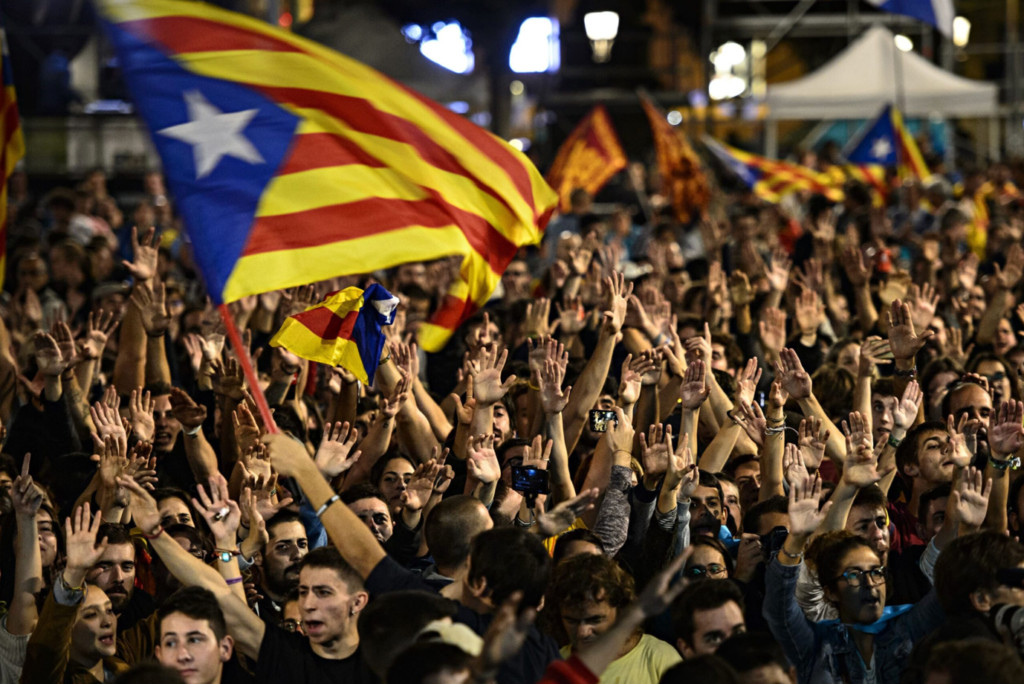
A draft amnesty law now aims to acquit hundreds of people who have been caught up in the networks of rebellion over the last ten years. But Sanchez’s sudden change of heart after promising such leniency has caused a storm of indignation among his opponents.
The PP and Vox are sharply attacking Sanchez and accusing him of hypocrisy for throwing his principles overboard to save his own skin. They accuse him of bowing to the divided factions and prioritising party affiliation over his patriotic duty to the divided nation.
As the backlash intensifies, Sanchez’s risky move threatens to tear his government apart before it has even really begun. Only time will tell whether playing the independence card will secure him control – or whether it will be the ace that sends the whole deck of cards around him up in flames.
Santiago Abascal, the leader of Vox vehemently condemned Sanchez’s amnesty measures, describing them as “regime change by the back door” and initiating a lawsuit before the Spanish Supreme Court.
The leader of the People’s Party, Alberto Nuñez Feijóo, made serious accusations against Prime Minister Sanchez. “It is only one man’s selfish thirst for power that is driving us onto the streets today,” shouted Feijóo, taking direct aim at his rival. “We Spaniards will never accept our highest office becoming a bargaining chip to be sold to the highest separatist bidder.” Feijóo, who roused the crowd to storms of enthusiasm, vowed to fight Sánchez’s betrayal of the nation at every turn. “New elections must be called immediately,” he demanded.
There were violent clashes between police and far-right extremists outside the PSOE’s Madrid headquarters and loudspeaker vans roared through the streets, chanting “Sanchez, traitor” and “We will stop the coup”. To make matters worse, the Catalan separatist party ‘Junts’ has warned Sánchez that he cannot count on their unconditional support during his upcoming term in office.
Complex coalitions are nothing new in Spain’s parliamentary process – success often depends on the skilful balancing of fragile factions. And while Sanchez brought together the minority blocs that won a majority, their combined votes surpassed those of past regimes.
But it was the shadowy support that Sanchez actively courted that set alarm bells ringing across the country. By aligning himself with secessionists whose sole aim is to jeopardise unity, he put himself at risk of treason.
Although backroom deals build many governments, Sanchez’s covert deal was of a more controversial kind, inflaming passions never before seen on all sides of this volatile issue.
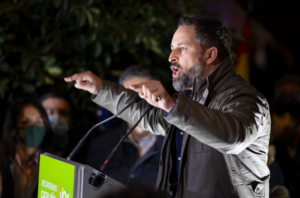
Pedro Sanchez’s latest gamble has provoked a strong backlash across the Spanish population, including within his own party, and raised the alarming spectre of a nation on the brink of division. It has also sparked widespread protests across the country.
The People’s Party (PP) called on the European Union to intervene, and the far-right Vox party accused Prime Minister Pedro Sánchez of staging “a coup d’état in capital letters”.
While political storms were brewing at home, Spain’s turbulence took centre stage in Brussels. The powerful EPP group in the EU Parliament sounded the alarm and called for an urgent debate during the November plenary sitting.
EPP chairman Manfred Weber denounced Sanchez’s actions as “the “beginning of lawlessness” and joined forces with Spanish delegate Dolors Montserrat. Their letter states: “The amnesty agreement risks undermining the separation of powers and silencing the voice of the judges’,” reflecting the fears expressed in the Spanish courts.
With the EPP able to rally like-minded groups from across the spectrum, it seemed certain that the group would put the showdown on the schedule. As Brussels prepared to intervene in the domestic unrest, Sanchez was fighting on two fronts.
| Sanchez braces for turbulent second term
While emotions ran high on all sides, Sanchez defended his controversial measures in front of hostile MPs at his investiture. “Today, in the name of peace, we have the chance to leave the conflicts of the past behind us,” he declared in the midst of a rising storm.

“This amnesty will show mercy to those caught up in the maelstrom of rebellion – political rivals whose aims I oppose, but also ordinary citizens caught up in a riot they did not cause themselves”. But the opponents rejected this argument and spoke of betrayal of sacred oaths. Undaunted, Sanchez stood firm. “Far from weakening our foundations, this proves the power of the Constitution to override past transgressions and reunite the entire Spanish people under its protection”.
While the debates threatened to tear Congress apart, the Prime Minister remained determined to steer a calm course through the chaos. But could even the long arm of the law hold back the tidal wave before it crashed over the kingdom with unbridled force as anger boiled up on the edges of the country?
Apart from the political unrest, which is unlikely to subside, the amnesty agreement raises considerable legal concerns. The agreement between Sanchez and Puigdemont’s ‘Junts’ party has been almost unanimously disapproved of by judicial authorities and associations, particularly with regard to the proposed establishment of parliamentary committees of enquiry to investigate so-called “lawfare”, i.e. the use of the judiciary to persecute political opponents. Judges and Spanish lawyers see this as an unjustified interference by the legislator
in the competences of the judiciary, an opinion that is also shared by international legal experts.
While the amnesty spares Puigdemont another exile and lifts the ban on rebel leaders, Sanchez and his supporters are trying to cast a wider net. They are demanding that schoolteachers, civil servants and even heroic firefighters and officers involved in the unrest also be pardoned.
But the separatists may be sensing an opportunity to regain lost footholds and are excited at the prospect of reprising former roles. And for the opponents, such returnees only promise to rekindle the embers of past divisions and reopen barely healed wounds.
Even those in favour of pardons secretly concede that capitulating to the renegades risks further inflaming passions that are already at boiling point.
With tensions threatening to boil over again, only time will tell whether this act of mercy will calm tempers – or whether it will prove to be the spark that sets Spain’s political powder keg ablaze once more.
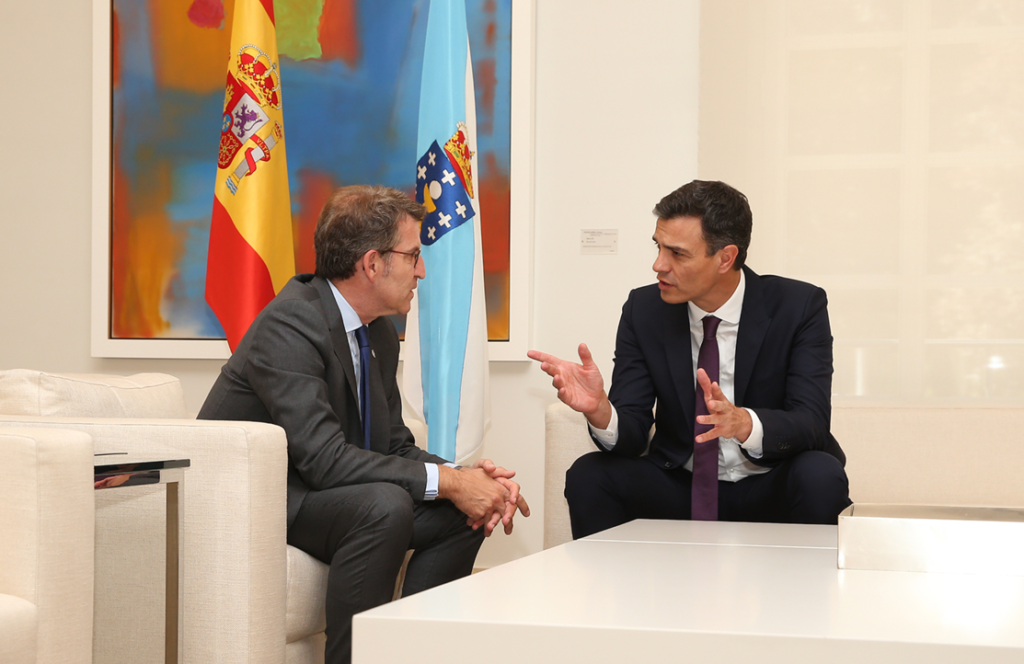
Alberto Nunez Feijoo had previously criticised Sanchez sharply for agreeing to an amnesty that would also include Carles Puigdemont, the leader of the ‘Junts’ party and former president of Catalonia, who fled to Belgium after the 2017 independence referendum to avoid arrest.
“You are the problem,” he stated. “You and your broken promises, your lack of moral principles and your pathological ambition. Spain will be condemned to division as long as you are in charge. Your tenure in office as prime minister will be characterised by the unrestricted return of Puigdemont to Catalonia. History will not forgive you.”
Even among supposed allies, there was a threat simmering beneath the surface. When Sanchez conjured up visions of Spanish unity, ‘Junts’ responded with a chilling warning that travelled through Congress like a winter wind. “Do not tempt fate, Mr Prime Minister, or test our wavering loyalty. Our support comes only on a case-by-case basis…it is not unconditional”.
The veiled threat sent shivers through Sanchez’s fragile flock and showed that independence movements keep their teeth even when on a leash. How long would it be before the minority rulers, relying on the whims of such wayward factions, dissolved their unstable union altogether?
While domestic discord raged, a different tone prevailed beyond Spain’s borders. Amid the howls of outrage from the PP and Vox, Pedro Sanchez found unlikely allies among normally neutral politicians.
German Chancellor Olaf Scholz was the first to extend an olive branch and offer swift respect. A short time later, there were also favourable words from the highest level in Brussels, when Council President Charles Michel supported the embattled prime minister’s survival in the chaos.
Their approval allowed a glimmer of hope to shine through the gathering political storm clouds. But at home, there were no signs that the opposition’s outrage would subside any time soon.
With foreign factions backing Pedro Sanchez while dissent at home soared to new heights, Spain appeared to be navigating turbulent translations between the international arena and its own fractured landscape in the difficult times ahead.

